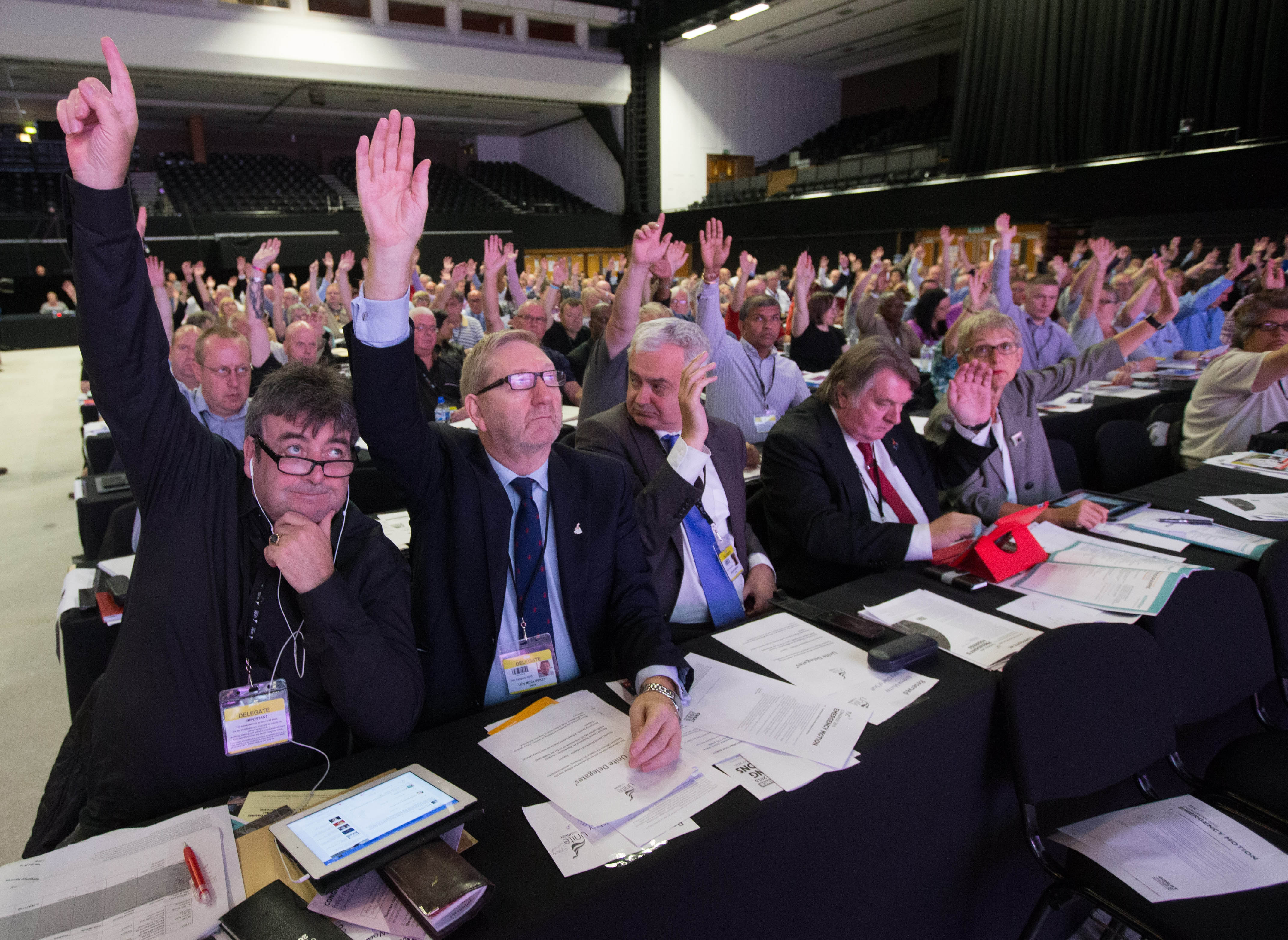No workers’ rights? No World Cup
Unite delegate Scot Walker spoke in support of a motion on FIFA today (September 16) on the final day of the TUC conference.
“Sisters and brothers, as a football fan, I recognise that the beautiful game can occasionally be divisive,” he said.
“But it can also be an incredible force for good, mobilising fans to the benefit of many a campaign, often ahead of the curve, with an ability to reach into ordinary people’s living rooms with a simple message which resonates,” added Scot.
Scot referred to the recent campaign to display ‘Refugees Welcome’ banners at games across Europe as an example.
“[It was] a simple act showing solidarity and humanity with those fleeing Syria and other war torn countries,” he said.
“Too often, though, the game’s governing body has found itself in a different position to its fans — caught in an offside position, none more so than in its controversial decision to award the World Cup to Qatar in 2022, despite deadly conditions for workers and an appalling human rights record,” added Scot.
A report in December revealed migrant workers building the stadiums for the World Cup died at a rate of one every two days in 2014, and by the time the tournament kicks off in 2022 it predicts 4,000 workers will have died.
“Where is the FIFA influence to be seen in enforcing the Qatari government promises of reform of labour policies which amount to nothing less than modern-day slavery?” asked Scot.
It is estimated that Qatar will spend $100bn on infrastructure for the World Cup. It is the richest country in the world by income per capita.
“They can more than afford to invest in and protect their workforce,” said Scot.
“Comrades, it can be hard being a fan of the beautiful game, harder if you’re a Scotland fan, and harder still when your own football association decided to play a friendly against Qatar earlier this year,” he added.
But Scot went on to speak about how he was filled with pride at the campaign by the STUC to highlight the labour exploitation and abuse of human rights in Qatar.
“The mobilising of fans and trade unionists to lobby the SFA, and the furore of Scotland fans, many of whom voted with their feet, was heard loud and clear,” he said.
Scot quoted the football writer Simon Kuper, who wrote in his book Soccernomics: “It seems that soccer tournaments create those relationships – people gathered together in pubs and living rooms, a whole country suddenly caring about the same event. A World Cup is the sort of common project that otherwise barely exists in modern societies.”
“We must make sure that we harness that togetherness,” Scott added. “The power of those gathered in the pubs and living rooms and say to FIFA and Qatar – No respect for workers and human rights? No World Cup.”
 Like
Like Follow
Follow


